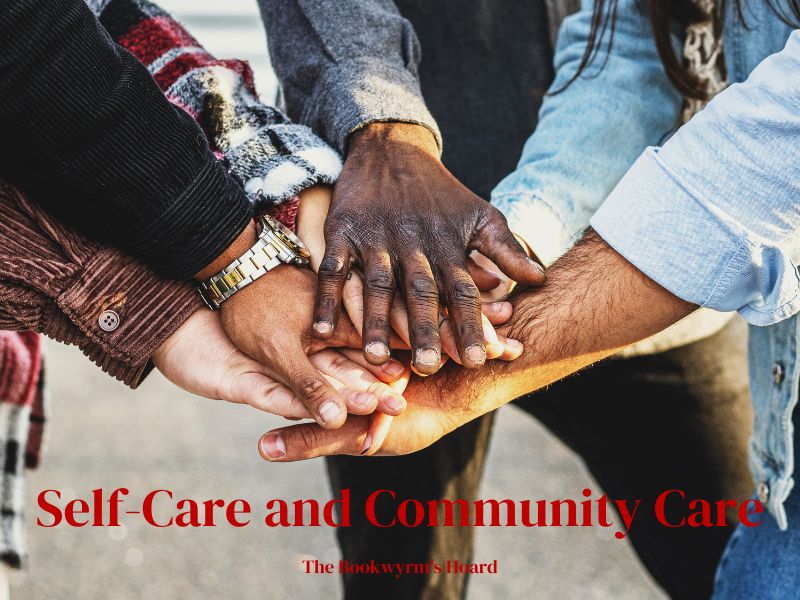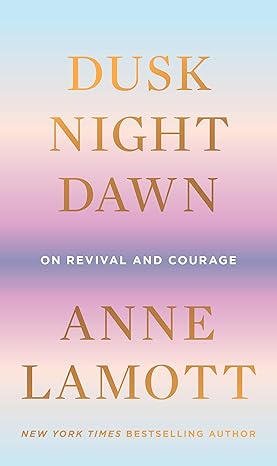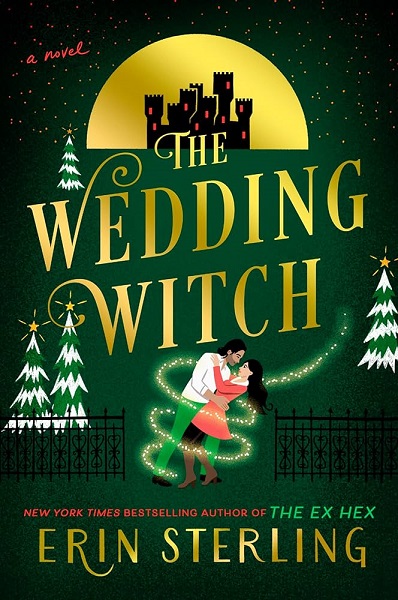NOTE: I don’t usually discuss politics on my blog. And I’m not going deeply into politics now, but this post does reference the current and future political situation, specifically in the US but applicable more broadly. While I welcome discussion on the main focus of this post, namely self-care and community care, I decline to argue about how terrible or great the incoming president’s administration will or will not be. Please be kind and respectful in your comments.
A lot of people have been thinking and talking about “what do we do now” — now that we are facing another four years of a Trump presidency, and all (or at least some) of the drastic changes he and his cronies have suggested making to the U.S. government and its existing policies and programs. And look, I am not here to argue politics or discuss whether any of the incoming administration’s policies, proposals, and political appointees are terrible or wonderful. I happen to think they’re pretty universally terrible. If you feel otherwise, that’s your choice; I don’t want to argue about it right now.
What I want to do is talk about what we can do to get through the next… however many months and years. Because I honestly believe that if even half of their proposals are carried through even halfway, it’s not just those of us who voted against him who are going to feel the impact one way or another; everyone is. (Widespread tariffs, for example, will raise prices on a lot of everyday items, from food to clothing to tech.) And even if I’m wrong, there are plenty of other challenges facing the world today, from war to climate change.
So what can we do, when it all feels like too much, when we’re frightened or angry or grieving about what is happening and what we fear may happen? I’m seeing a lot of posts recommending “self-care,” and that’s important, no question! You have to take care of yourself; your survival (both literal and metaphorical) matters. But for me, it’s not enough to just survive, especially at the expense of other people.
In her most recent newsletter, romance author (and former Supreme Court clerk) Courtney Milan talked about how angry she had been during 45’s previous term, and how that anger had not been good for her mental or physical health. Anger isn’t bad in and of itself, she said; righteous anger can be a strong motivator. But it’s not healthy to be constantly in fight-or-flight mode, or constantly stewing in your anger, especially if you don’t do anything constructive with it. One of the constructive things Courtney Milan did was help found and work with Romancing the Vote:
The thing that helped the most, at least for me, was Romancing the Vote — the auction that I started with Bree and Donna of Kit Rocha to raise money for voting rights. For me, at least, the most effective form of self-care was doing something to make the world a better place.
I have been thinking about this a lot lately, because I do not intend to go back to the place I was in at the end of the last Trump term. That really sucked. Instead, I’ve been trying to think of forms of self-care that would enrich and connect me, rather than just temporarily manage my symptoms.
— Courtney Milan, “Courtney’s Weekly Tea” newsletter, 11/20/2024
This really struck a chord for me, because due to my anxiety, it’s so easy for me to spiral down into fear, anger, and despair. None of those are healthy for me.
Reading is self-care for me. So are knitting, spinning, and writing. And exercise, eating right, and getting enough sleep are all necessary self-care, even if I tend to neglect them when I am most stressed. But all of those are about me; they don’t make a difference to anyone else’s life (except perhaps my husband and family.) They are important, yes. They help keep me sane and reasonably healthy, and I can’t do much to make the world a better place if I’m paralyzed with anxiety and despair. But I do sincerely want to make the world a better place, especially as it seems there are so many forces actively trying to make it worse for so many people.
A lot of us think about self-care along the same lines: things you do to escape your troubles, pamper yourself a little, refresh your spirit. It’s inherent in the term: you are caring for yourself; of course your self-care is centered on you. But I like Courtney’s approach: to “think of forms of self-care that would enrich and connect me, rather than just temporarily manage my symptoms.” That doesn’t mean to neglect the forms that are self-focused, if they help. And it certainly doesn’t mean you should neglect your physical health (which can have an effect on your mental/emotional/spiritual health, too.) But can you also find things that lift you up by connecting you to other people — things that make the world a little better? Maybe just in your own neighborhood or community, maybe in the wider world?
When I think this way, I find myself returning to a novelette I read earlier this year, Naomi Kritzer’s “The Year Without Sunshine.” It’s a wonderful story about a slow disaster, and how one neighborhood pulls together to protect all of the members of the community. Go read it; I’ll wait. (There are spoilers ahead, so please. . . do go read it.)
Finished? Good, then I’ll continue.
Faced with growing shortages of food, supplies, medicines, and even power, Kritzer’s fictional community looks out for one another regardless of any political differences they had before things started falling apart, and regardless of whether the person has been involved or helpful before. If there’s a need, the community tries to fill it somehow, with each person or couple offering what knowledge and supplies they have. The community members also join together to protect the community from outsiders who want to take things by force, while remaining welcoming to people who are willing to come share what they have and can do.
In the coming months and years, all of us may find we have a lot in common with Kritzer’s fictional community, figuratively and perhaps even literally. Things will go wrong, sometimes badly wrong, whether because of policy decisions, corruption, authoritarianism, climate change, a pandemic, natural disasters, war, or combinations of any of these. That has always been true, but the odds are higher now than they have been in much of my lifetime, especially here in the U.S. Each of us will have to decide how we respond.
As Kritzer’s story points out, community is how we get through the next four years (and longer.) Taking care of each other. Sharing what we have and what we can do, helping those who need it, working together for the good of all of us.
This approach embodies the Quaker values I was raised within. It embodies the essential values I find in Christ’s teachings. I see those same values in most of the other major spiritual traditions as well. (True, people and organized religions often fail to live up to those values, but that’s a failure of belief and lived behavior, not a failure of the values themselves.)
In light of community as a value, self-care focused only on myself is not enough. It’s important, even critical — but it is not enough. Oh, I will continue reading, writing, knitting, spinning, walking, praying, and connecting with family and friends. I need those activities to recharge my emotional, spiritual, and physical batteries. But like Ms. Milan, I will also seek ways I can make the world a better place, within my own communities and more broadly. That will mean donating money to organizations that do what I cannot do myself. On a personal level, it may mean calling my local, state, or federal representatives about an upcoming vote; speaking up when someone says something bigoted; knitting hats and scarves for people in a local shelter; offering support and friendship to someone whose family doesn’t accept their identity; giving a ride to a neighbor going through cancer treatment; volunteering in my community. I don’t know what the specific needs will be, but I will try to stay open to meeting them.
I hope you will, too.






































Lory @ Entering the Enchanted Castle
Lark, I love what you’ve said here and I am sure it will resonate with many. I too am seeking “forms of self-care that would enrich and connect me, rather than just temporarily manage my symptoms.”
There has to be balance, of course. It is important to pay heed to our symptoms and seek to deal with the underlying conditions, because if we don’t, our efforts to help in the world will only spread our own sickness further. I see that so much in my own prior efforts, and I want to change that dynamic.
But at the same time, I can’t stay in isolation any longer. I have to reach out somehow. I think starting with those closest to us, our own families and neighbors and communities, is a good way. When I try to leap over those, I get in trouble.
I have just started to read the prophet Jeremiah as an Advent study, and I find this very helpful. As forces he found utterly repugnant took over his world, he had to find a way through anger to grieving and finally peace and acceptance. I look forward to walking that journey with him and seeing where it takes me.
Lory @ Entering the Enchanted Castle recently posted…Month in Review: November 2024
Anne - Books of My Heart
Community and self-care are always important but especially now.
Anne – Books of My Heart recently posted…How to Steal a Galaxy by Beth Revis @bethrevis @dawbooks @BerkleyPub @SnyderBridge4
Nicole @ BookWyrmKnits
I 100% agree with what you’ve said here. I decided near the end of November that my focus for 2025 will on care — self care and community care both. I’m not yet sure exactly what kind of actions that will mean, but I’m going to try to do a lot better than I did in the 4 years after the 2016 election. I can’t just hunker down and get myself (and my family) through it this time. There’s too many vulnerable people at greater risk than I am, and not all of them have the safety nets that I do.
Nicole @ BookWyrmKnits recently posted…December Linkity Gets Back To It